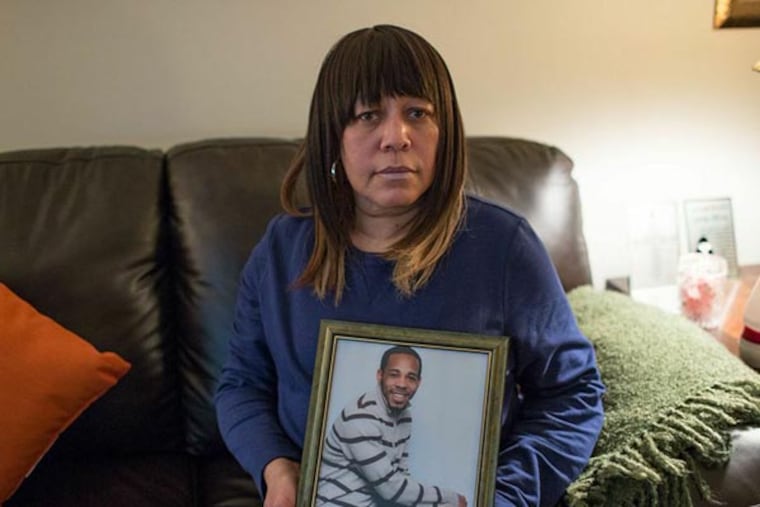
Deadly police shootings in Philadelphia have fallen by 75 percent over the last year as the Police Department has implemented a number of steps to reduce the use of lethal force.
So far in 2014, police officers have shot and killed three people.
By the same date last year, they had killed 12.
And in 2012 by this date, officers had killed 16.
In a wide-ranging interview this week, Police Commissioner Charles H. Ramsey said he hoped that the trend reflected the department's shake-up in training and tactics, which range from adopting a "statement on the sanctity of human life" to emphasizing "reality-based" weapons training for officers.
Ramsey met with federal officials Monday to go over a draft of a new Department of Justice report examining the Police Department's use of deadly force. A Police Department spokesman said they reviewed key points of the report and the feasibility of the federal recommendations.
In May 2013, the commissioner invited the federal experts to examine the department's practices as part of a "collaborative review."
The request followed a Philly.com report that documented a spike in the number of police-involved shootings despite a citywide drop in crime.
As the new policies have been phased in, the total number of shootings to date - fatal and nonfatal - has plummeted from 48 in 2012 to 35 in 2013 and to 18 so far this year, according to the department.
"To the extent that is the result of better training and accountability, Ramsey deserves credit," said Philadelphia civil rights attorney David Rudovsky. "On the other hand, it's far too early to say that whatever measures that have been put in place will result in a permanent decrease in shootings."
The Justice Department report, which will be made public before the year's end, closely mirrors a similar report prepared for Las Vegas police, Ramsey said.
Some of the federal recommendations will require negotiations with the police union, Ramsey said. He declined to discuss specific recommendations for Philadelphia's force but addressed questions prompted by the Las Vegas findings.
"We've already begun making some revisions in our training and our response to officer-involved shootings," Ramsey said. "Whether or not they go as far as the DOJ wants us to go, that's another question."
The federal report on the Philadelphia force was originally expected in September. While the assessment in Nevada was finished in six months, Ramsey said the Philadelphia study focused on a larger force and required more interviews and focus groups.
"It's a lot of work," Ramsey said. "I'd rather they be thorough. They talked to a lot of folks."
In its 2012 Las Vegas report, the Justice Department recommended making information more accessible to the public. Philadelphia followed suit in January, posting online summaries of police shootings dating to 2007. The Justice Department also recommended that Las Vegas formally adopt a "sanctity of human life statement" as part of police policy.
Ramsey added one to the directive governing the use of deadly force early this year. It states that officers will "hold the highest regard for the sanctity of human life" and the "application of deadly force is a measure to be employed only in the most extreme circumstances."
The statement means little to Carolyn Moses, whose son Jamil, 24, was a passenger in a stolen car in February 2011 that police boxed in after a high-speed chase. Both the driver and Jamil were unarmed.
"They were told to put their hands up," Carolyn Moses said. "His hands were on the dashboard when he was shot and killed."
The city paid $2.5 million to settle the resulting civil rights cases. No officer was charged.
Investigators recovered 62 bullet casings at the scene. Police said that the car's two occupants refused to get out of the car and that one appeared to be reaching under his seat. Civil rights attorney Paul Hetznecker said an independent eyewitness stated that the two men were unarmed, their hands were visible at all times, and there was no reason for police to open fire.
Watching the riots in Ferguson have dredged up painful memories, Carolyn Moses said.
"We all know that death is inevitable," she said. "but it's not the norm for a parent to bury their children."
The Las Vegas report repeatedly stressed the need for more training.
Already, 2,500 Philadelphia officers - more than a third of the force - have gone through crisis-intervention training designed to de-escalate tense confrontations before they erupt into violence, Ramsey said. The training is intense and time-consuming.
The department is also ramping up the amount of reality-based training in which officers confront unpredictable situations in video role-playing scenarios.
Hetznecker was skeptical that more training, reality-based or not, would bring the necessary changes to the police force.
"It does nothing to address the necessary cultural change within the Police Department, or ensure public accountability," he said. "Without these two components it remains a part of a cyclical 'crisis' mode of management that has been the legacy of this department."
Ramsey said he plans to launch training for "fair and impartial policing" next year. The short course deals with explicit and implicit biases, he said.
"Everyone has a bias of some kind," he said. "It could be race, gender, or sexual orientation. It could be political. So how do you filter out bias so you don't let it influence decisions?"
In Las Vegas, not all officers welcomed the new training required by the Justice Department. Ramsey said he expected some of his own to be resistant.
"I'm not naive enough to believe some people might not be on board," he said. "I'm hoping that won't be the case here."